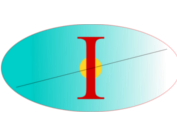Citation:
| livshits2011.pdf | 2.65 MB |
Abstract:
A generalized Kohn-Sham (GKS) approach to density functional theory (DFT), based on the Baer-Neuhauser-Livshits range-separated hybrid, combined with ab initio motivated range-parameter tuning is used to study properties of water dimer and pentamer cations. The water dimer is first used as a benchmark system to check the approach. The present brand of DFT localizes the positive charge (hole), stabilizing the proton transferred geometry in agreement with recent coupled-cluster calculations. Relative energies of various conformers of the water dimer cation compare well with previously published coupled cluster results. The GKS orbital energies are good approximations to the experimental ionization potentials of the system. Low-lying excitation energies calculated from time-dependent DFT based on the present method compare well with recently published high-level "equation of motion-coupled-cluster" calculations. The harmonic frequencies of the water dimer cation are in good agreement with experimental and wave function calculations where available. The method is applied to study the water pentamer cation. Three conformers are identified: two are Eigen type and one is a Zundel type. The structure and harmonic vibrational structure are analyzed. The ionization dynamics of a pentamer water cluster at 0 K shows a fast <50 fs transient for transferring a proton from one of the water molecules, releasing a hydroxyl radical and creating a protonated tetramer carrying the excess hole.
Notes:
RBaer-Publication



